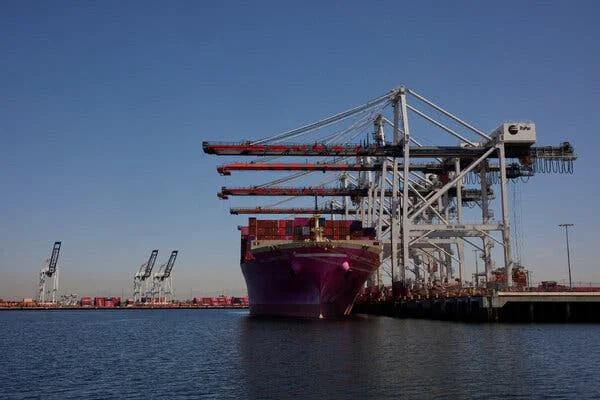
Is the US Economy on the Brink of a Recession? Insights from the IMF
The latest International Monetary Fund (IMF) projections are raising eyebrows as they signal a potentially severe economic downturn for the United States, primarily due to trade tensions and escalating tariffs. The IMF has stated there’s now a 40% chance of a recession in the US—an alarming statistic that has economists and policymakers on high alert.
During the recent IMF meeting in Washington, D.C., the organization's chief economist, Pierre-Olivier Gourinchas, emphasized that the global economy is being "severely tested". He noted that the effects of US trade policies are significant, with the IMF downgrading its growth forecasts for the nation from an earlier estimate of 2.7% to a mere 1.8% for this year. This marks the largest downgrade among advanced economies, which raises questions about the impact of these tariffs not only in the US but also globally.

The IMF’s analysis indicates that trade tariffs hinder growth as they increase costs for businesses, creating uncertainty in global supply chains. This uncertainty leads many companies to pause investments, ultimately stifling growth and employment opportunities. As firms reevaluate their strategies amid volatile conditions, the broader impacts could ripple through to consumer spending, further exacerbating economic challenges.
Markets have reacted to these unfolding events. Following Monday's drop, all major US indexes opened higher, showing a brief respite. The S&P 500 was up 1.14%, while the Dow Jones gained 1.08%, and the Nasdaq rose by 1.27%. However, concerns linger as the dollar's value remains at lows not seen in over three years, an indicator of declining investor confidence amidst increasing trade fears.

In the backdrop of this economic turmoil, President Donald Trump has publicly criticized Jerome Powell, the chair of the Federal Reserve, calling for immediate interest rate cuts to stimulate growth. Trump’s remarks, referring to Powell as a "total loser", add to the uncertainty regarding the Federal Reserve's independence, which is critical for maintaining economic stability.
Among other nations, the IMF noted that China is expected to grow by just 4% this year—a significant downgrade from previous estimates. Meanwhile, Mexico faces a contraction, highlighting how closely the fates of these economies are tied to US trade policy. On a more positive note, Spain remains an outlier with a slight upgrade in growth forecasts, primarily due to recovery activities from recent disasters.
As the IMF calls for a reevaluation of international trade dynamics, the pressing question remains: How will global markets adjust to these evolving realities? The interplay of tariffs, market uncertainty, and public policy is likely to define economic outcomes in the months to come. Readers are encouraged to share their thoughts on how these developments might impact their financial futures and what steps they believe should be taken to stabilize the economy.